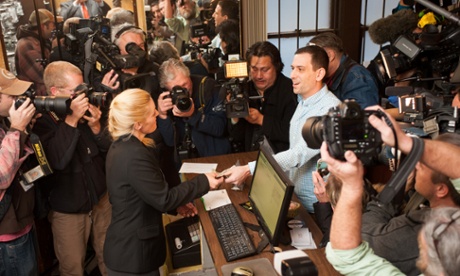UKRAINE has published a list of some 620 academics, journalists, military veterans and politicians who it says are Russian propagandists. Three such worthies in the list are Indian, and they seem baffled by the accusation.
As ‘agents’ go, there’s probably nobody to beat Pakistan, followed by India in sheer turnover. Someone praising an Indian batsman in Pakistan could fall into the category of an Indian agent as is known to have happened with cricket enthusiasts in India cheering for a Pakistani bowler. An Indian or Pakistani critical of authoritarian rule in their countries could be portrayed as enemy agents.
Rahul Gandhi has made the grade more frequently than many others. Opponents of nuclear weapons on both sides are easily saddled with the opprobrium of helping the enemy. Occasionally, campaigners for peace between the two become targets of slander. Others run the risk of annoying both sides.
The Pakistani establishment deemed Faiz Ahmed Faiz as too close to India. And now his daughters have run into trouble with the Indian visa regime.
Let’s suppose Russia were to publish a list of Ukrainian ‘agents’ in India. Quite a few, surely, including top-ranking former diplomats, would be running for cover having declared the imminent fall of Vladimir Putin either by assassination or a bloody coup.
The maxim that truth becomes a casualty in war is thus only half true. Peacetime is no longer a safe sanctuary for the ill-fated truth against being exchanged for something more expedient. Countries are creepily spying on their own unlike the old days when foreign agents were planted abroad to pry on each other.
A very determined American lover of democracy exposed the subversion of the constitution in his country whereby ordinary citizens were spied on in a Big Brotherly way. He is now parked in a Moscow hotel, some distance from those seeking to hunt him down as an enemy of the state. Such heroes are not uncommon across the world. Julian Assange and Mordechai Vanunu belong to this club.
Ukraine’s unusual move has an Indian parallel. It reminds one of framed pictures of intellectuals critical of the ultra right-wing government in Uttar Pradesh hung in public squares in Lucknow. The high court ordered the photos removed to protect the life and limb of those framed, as also their privacy.
Ukraine’s countermeasures have a history. During the war with Nazi Germany, Britain, currently advising Kyiv, had a department of propaganda, which was called that. It toggled also as the information department in its other avatars.
The ministries of information in our patch have remained a euphemism for the state’s propaganda overdrive targeting its own people mainly, come peace or war. In Ukraine, the Centre for Countering Disinformation was established in 2021 under Volodymyr Zelensky and headed by former lawyer Polina Lysenko.
According to UnHerd — the journal that carried absorbing responses from some of the alleged Russian propagandists — the disinformation department sits within the National Security and Defence Council of Ukraine. Its stated aim is to detect and counter “propaganda” and “destructive disinformation” and to prevent the “manipulation of public opinion”.
The July 14 list on its website names those “promoting Russian propaganda”. Several high-profile Western intellectuals and politicians were listed. Republican Senator Rand Paul, former Democrat Congresswoman Tulsi Gabbard, military and geopolitical analyst Edward N. Luttwak, political scientist John Mearsheimer and renowned journalist Glenn Greenwald were named. “The list does not explain what the consequences are for anyone mentioned,” the UnHerd story notes.
Next to each name the report lists the “pro-Russian” opinions the individual promotes. For example, “Luttwak’s breach was to suggest that ‘referendums should be held in the Donetsk and Luhansk regions’”; Mearsheimer’s folly was to say that “Nato has been in Ukraine since 2014” and that “Nato provoked Putin”. UnHerd contacted and published the comments by Luttwak, Mearsheimer and Greenwald.
From Feb 24, the very start of the war, said Luttwak, he had “relentlessly argued that not just the US, UK, Norway and others should send weapons to Ukraine, but also the reluctant trio of France, Germany and Italy”.
“What happened is this. I said that there is a victory party and the victory party is not realistic … Their idea is if Russia can be squarely defeated then Putin will fall. But this is also the moment when nuclear escalation becomes a feasibility. It is a fantasy to believe Russia can be squarely defeated. In Kyiv they have interpreted this stance as meaning I am pro-Russia.”
Mearsheimer was equally annoyed at being labelled a Russian plant. “When I was a young boy, my mother taught me that when others can’t beat your arguments with facts and logic, they smear you. That is what is going on here.
“I argue that it is clear from the available evidence that Russia invaded Ukraine because the United States and its European allies were determined to make Ukraine a Western bulwark on Russia’s border, which Moscow saw as an existential threat. Ukrainians of all persuasions reject my argument and instead blame Vladimir Putin, who is said to have been bent on conquering Ukraine and making it part of a greater Russia,” he told UnHerd.
“But there is no evidence in the public record to support that claim, which creates real problems for both Kyiv and the West. So how do they deal with me? The answer of course is to label me a Russian propagandist, which I am not.”
Greenwald saw a clear glimpse of McCarthyism in the Ukrainian list.
“War proponents in the West and other functionaries of Western security state agencies have used the same tactics for decades to demonise anyone questioning the foreign policy of the US and Nato. Chief among them, going back to the start of the Cold War, is accusing every dissident of spreading ‘Russian propaganda’ or otherwise serving the Kremlin. That’s all this is from the Ukrainians: just standard McCarthyite idiocy.”
The Pakistani establishment deemed Faiz Ahmed Faiz as too close to India. And now his daughters have run into trouble with the Indian visa regime.
Let’s suppose Russia were to publish a list of Ukrainian ‘agents’ in India. Quite a few, surely, including top-ranking former diplomats, would be running for cover having declared the imminent fall of Vladimir Putin either by assassination or a bloody coup.
The maxim that truth becomes a casualty in war is thus only half true. Peacetime is no longer a safe sanctuary for the ill-fated truth against being exchanged for something more expedient. Countries are creepily spying on their own unlike the old days when foreign agents were planted abroad to pry on each other.
A very determined American lover of democracy exposed the subversion of the constitution in his country whereby ordinary citizens were spied on in a Big Brotherly way. He is now parked in a Moscow hotel, some distance from those seeking to hunt him down as an enemy of the state. Such heroes are not uncommon across the world. Julian Assange and Mordechai Vanunu belong to this club.
Ukraine’s unusual move has an Indian parallel. It reminds one of framed pictures of intellectuals critical of the ultra right-wing government in Uttar Pradesh hung in public squares in Lucknow. The high court ordered the photos removed to protect the life and limb of those framed, as also their privacy.
Ukraine’s countermeasures have a history. During the war with Nazi Germany, Britain, currently advising Kyiv, had a department of propaganda, which was called that. It toggled also as the information department in its other avatars.
The ministries of information in our patch have remained a euphemism for the state’s propaganda overdrive targeting its own people mainly, come peace or war. In Ukraine, the Centre for Countering Disinformation was established in 2021 under Volodymyr Zelensky and headed by former lawyer Polina Lysenko.
According to UnHerd — the journal that carried absorbing responses from some of the alleged Russian propagandists — the disinformation department sits within the National Security and Defence Council of Ukraine. Its stated aim is to detect and counter “propaganda” and “destructive disinformation” and to prevent the “manipulation of public opinion”.
The July 14 list on its website names those “promoting Russian propaganda”. Several high-profile Western intellectuals and politicians were listed. Republican Senator Rand Paul, former Democrat Congresswoman Tulsi Gabbard, military and geopolitical analyst Edward N. Luttwak, political scientist John Mearsheimer and renowned journalist Glenn Greenwald were named. “The list does not explain what the consequences are for anyone mentioned,” the UnHerd story notes.
Next to each name the report lists the “pro-Russian” opinions the individual promotes. For example, “Luttwak’s breach was to suggest that ‘referendums should be held in the Donetsk and Luhansk regions’”; Mearsheimer’s folly was to say that “Nato has been in Ukraine since 2014” and that “Nato provoked Putin”. UnHerd contacted and published the comments by Luttwak, Mearsheimer and Greenwald.
From Feb 24, the very start of the war, said Luttwak, he had “relentlessly argued that not just the US, UK, Norway and others should send weapons to Ukraine, but also the reluctant trio of France, Germany and Italy”.
“What happened is this. I said that there is a victory party and the victory party is not realistic … Their idea is if Russia can be squarely defeated then Putin will fall. But this is also the moment when nuclear escalation becomes a feasibility. It is a fantasy to believe Russia can be squarely defeated. In Kyiv they have interpreted this stance as meaning I am pro-Russia.”
Mearsheimer was equally annoyed at being labelled a Russian plant. “When I was a young boy, my mother taught me that when others can’t beat your arguments with facts and logic, they smear you. That is what is going on here.
“I argue that it is clear from the available evidence that Russia invaded Ukraine because the United States and its European allies were determined to make Ukraine a Western bulwark on Russia’s border, which Moscow saw as an existential threat. Ukrainians of all persuasions reject my argument and instead blame Vladimir Putin, who is said to have been bent on conquering Ukraine and making it part of a greater Russia,” he told UnHerd.
“But there is no evidence in the public record to support that claim, which creates real problems for both Kyiv and the West. So how do they deal with me? The answer of course is to label me a Russian propagandist, which I am not.”
Greenwald saw a clear glimpse of McCarthyism in the Ukrainian list.
“War proponents in the West and other functionaries of Western security state agencies have used the same tactics for decades to demonise anyone questioning the foreign policy of the US and Nato. Chief among them, going back to the start of the Cold War, is accusing every dissident of spreading ‘Russian propaganda’ or otherwise serving the Kremlin. That’s all this is from the Ukrainians: just standard McCarthyite idiocy.”



